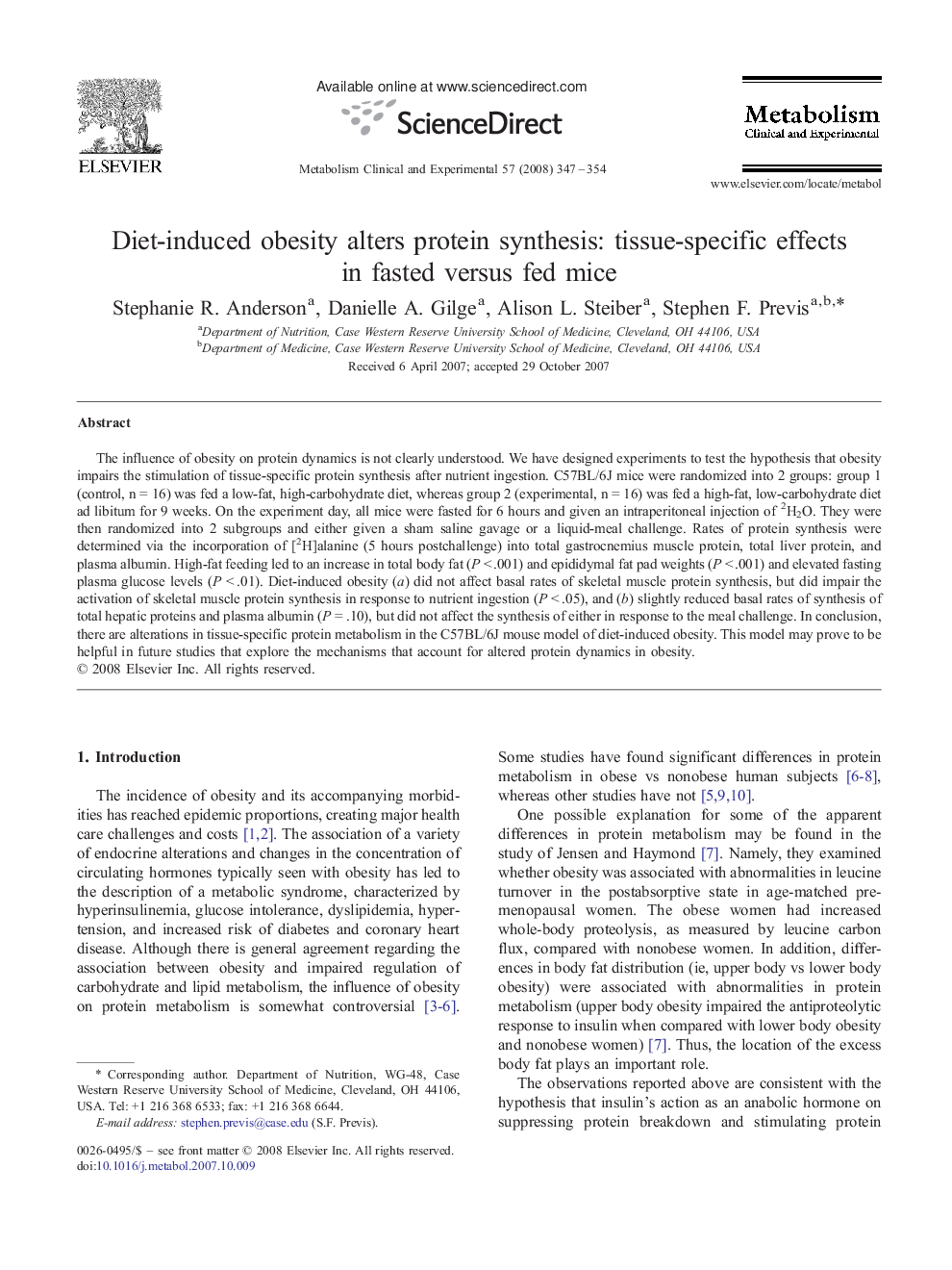| Article ID | Journal | Published Year | Pages | File Type |
|---|---|---|---|---|
| 2807223 | Metabolism | 2008 | 8 Pages |
The influence of obesity on protein dynamics is not clearly understood. We have designed experiments to test the hypothesis that obesity impairs the stimulation of tissue-specific protein synthesis after nutrient ingestion. C57BL/6J mice were randomized into 2 groups: group 1 (control, n = 16) was fed a low-fat, high-carbohydrate diet, whereas group 2 (experimental, n = 16) was fed a high-fat, low-carbohydrate diet ad libitum for 9 weeks. On the experiment day, all mice were fasted for 6 hours and given an intraperitoneal injection of 2H2O. They were then randomized into 2 subgroups and either given a sham saline gavage or a liquid-meal challenge. Rates of protein synthesis were determined via the incorporation of [2H]alanine (5 hours postchallenge) into total gastrocnemius muscle protein, total liver protein, and plasma albumin. High-fat feeding led to an increase in total body fat (P < .001) and epididymal fat pad weights (P < .001) and elevated fasting plasma glucose levels (P < .01). Diet-induced obesity (a) did not affect basal rates of skeletal muscle protein synthesis, but did impair the activation of skeletal muscle protein synthesis in response to nutrient ingestion (P < .05), and (b) slightly reduced basal rates of synthesis of total hepatic proteins and plasma albumin (P = .10), but did not affect the synthesis of either in response to the meal challenge. In conclusion, there are alterations in tissue-specific protein metabolism in the C57BL/6J mouse model of diet-induced obesity. This model may prove to be helpful in future studies that explore the mechanisms that account for altered protein dynamics in obesity.
